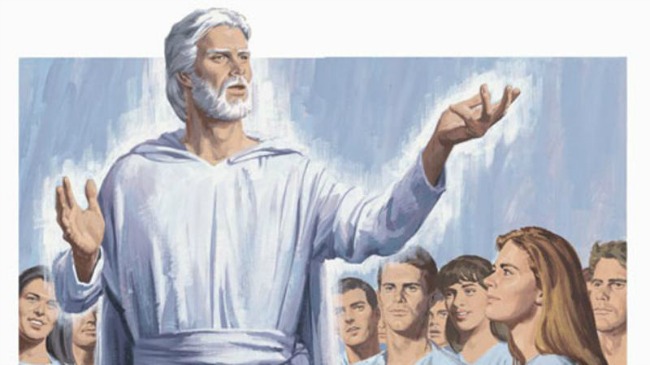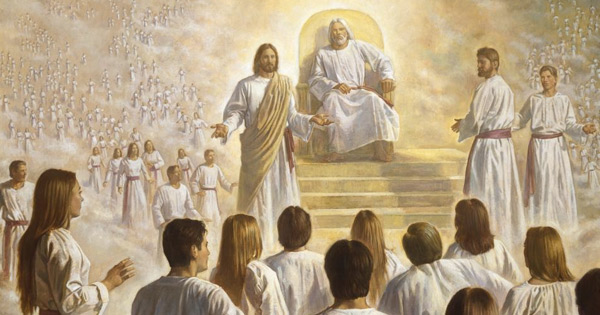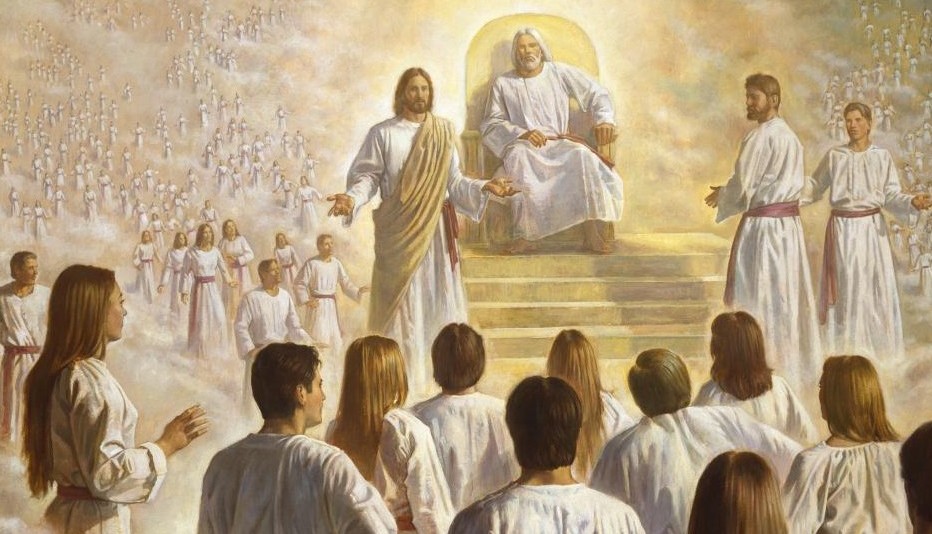Dear Gramps,
Why does (did) Elohim require suffering by Jesus for man to obtain forgiveness? Could He not have granted forgiveness to man without Jesus suffering?
Shane, from San Francisco, California
Dear Shane,
I’m sure that God could have granted forgiveness to mankind for all their sins without requiring of them the price of commensurate suffering, but if He would have done that, He would have ceased to be God. That was exactly what Satan proposed to do!—
And I, the Lord God, spake unto Moses, saying: That Satan, whom thou hast commanded in the name of mine Only Begotten, is the same which was from the beginning, and he came before me, saying–Behold, here am I, send me, I will be thy son, and I will redeem all mankind, that one soul shall not be lost, and surely I will do it; wherefore give me thine honor (Moses 4:1).
Among the qualities of perfection, of which God is endowed, are the principles of both justice and mercy. God is a just God. Otherwise there would be partiality, favoritism and inequity on the part of the Supreme Being. So, being a just God, a price of appropriate punishment must be exacted for every wrong doing. And it is logical and just that God not be mocked, but obeyed.
For I, the Lord, have decreed in my heart, that inasmuch as any man belonging to the order shall be found a transgressor, or, in other words, shall break the covenant with which ye are bound, he shall be cursed in his life, and shall be trodden down by whom I will; For I, the Lord, am not to be mocked in these things– And all this that the innocent among you may not be condemned with the unjust; and that the guilty among you may not escape; because I, the Lord, have promised unto you a crown of glory at my right hand (D&C 104:5-7).
But God is also a merciful God—
thou art just; thou art merciful and kind forever Moses 7:30.
So, how can God extend mercy to His children by forgiving them of their sins without violating the law of Justice? It could only happen if there were someone who would volunteer to accept the punishment for others, so that the price demanded of justice would be paid. Then mercy and forgiveness for sin could be extended to the erring one because the demands of justice would have been satisfied by the volunteer who accepted and was willing to endure the punishment that justice would exact in retribution of the broken law.
Here is an example. A man borrows a large some from another man, with the promise to pay by a certain date. The date comes and the borrower has not the means to repay the debt. He is now in violation of his promise to pay and subject to the just demands of the law. But his friend appears and says to the creditor, “I will pay the debt for him, if you will not turn him over to the law.” The creditor, demanding justice, is not concerned where the money is coming from, as long as he gets his just due. So, having been paid, he may now forgive the debtor his debt, and still feel satisfied that justice has been accomplished.
In like manner, the first born Son of God in the spirit world and the only begotten Son in the flesh, because of His love for all the other children of God, volunteered to assume the responsibility for all of the sins committed by all of our Father’s children over all the extension of time on all the inhabited worlds in the universe! and to accept the suffering for those sins that would be exacted by the demands of justice. Thus, the Savior of mankind paid the debt of justice so that the Father could extend His mercy in forgiveness of sin without violating the law of justice. The expiatory suffering of the Savior was actually infinite in its extension. Only a God would have the power to withstand such agony—
For behold, I, God, have suffered these things for all, that they might not suffer if they would repent; But if they would not repent they must suffer even as I; Which suffering caused myself, even God, the greatest of all, to tremble because of pain, and to bleed at every pore, and to suffer both body and spirit–and would that I might not drink the bitter cup, and shrink– Nevertheless, glory be to the Father, and I partook and finished my preparations unto the children of men (Doctrine & Covenants 19:16-19).
However, a price is exacted of those who sin before the infinite sacrifice of the Savior may be effective in their behalf. They must repent of their sins! In other words, they must get over them, give them up, that those sinful thoughts, words or actions are no longer a part of their lives. Then, through the infinite mercy of the Great God and His Only Begotten Son, the Savior of the world, it will be before God as though the person had never committed such sins in the first place—
Behold, he who has repented of his sins, the same is forgiven, and I, the Lord, remember them no more. By this ye may know if a man repenteth of his sins–behold, he will confess them and forsake them (Doctrine & Covenants 58:42-43).
Gramps







